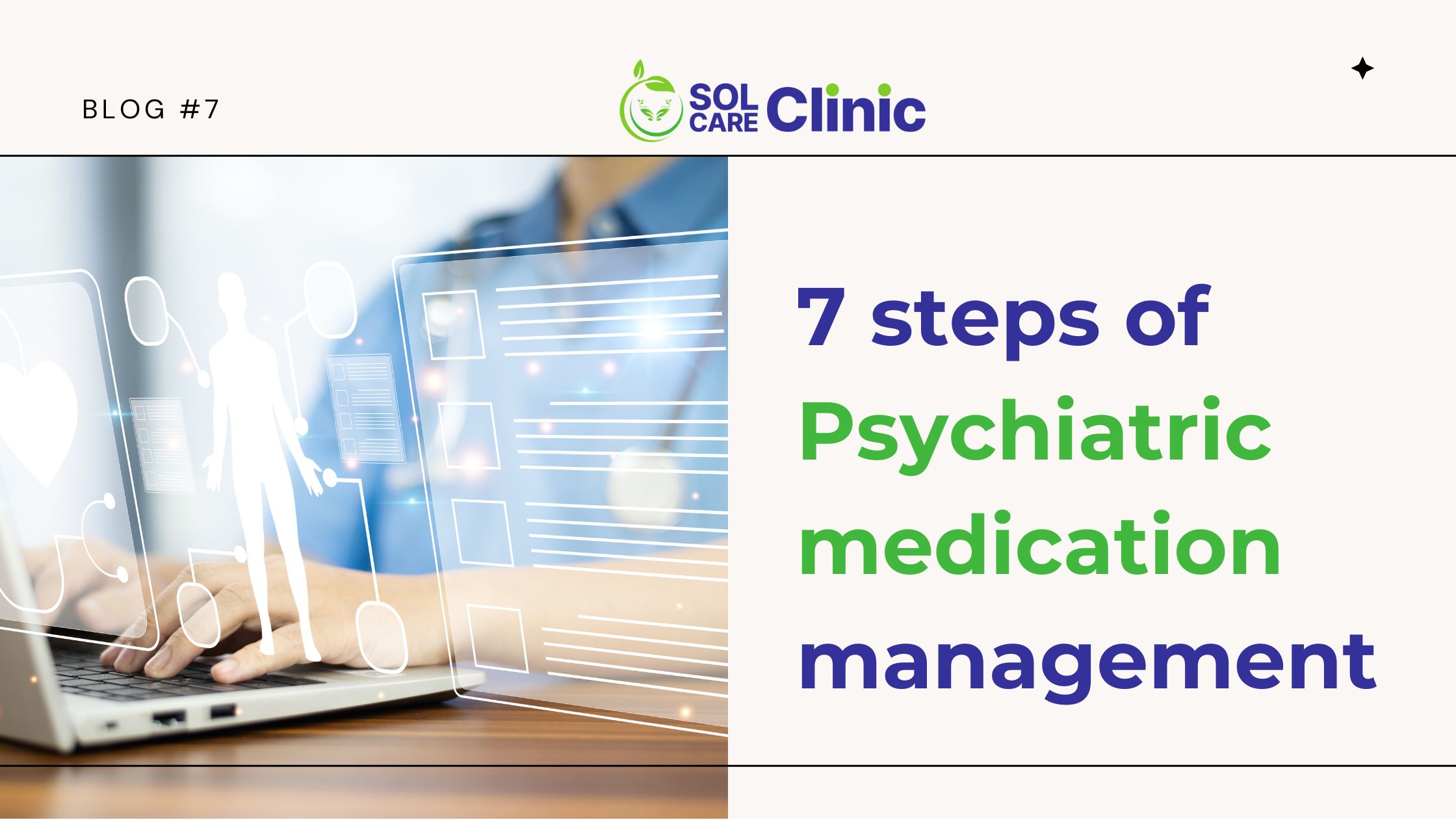Effectively managing psychiatric medications is a vital component of treating mental health conditions. It involves a careful and thorough process of evaluating, diagnosing, and treating individuals with psychiatric disorders. By following a structured approach, healthcare providers can ensure that patients receive appropriate medications tailored to their specific needs and receive the necessary support to manage their symptoms and improve their quality of life. The process includes monitoring the patient’s response to medication, adjusting dosages when necessary, and addressing any side effects or other concerns. Ultimately, successful psychiatric medication management can play a critical role in helping patients achieve improved mental health outcomes.
What is Psychiatric Medication Management?
Psychiatric medication management is a specialized field within mental healthcare that focuses on the safe and effective use of medications to treat psychiatric disorders such as depression, anxiety, bipolar disorder, and schizophrenia. It is vital in helping individuals manage their symptoms and function better daily.
What are the Steps Involved in Psychiatric Medication Management?
Assessment and Diagnosis
The first step in psychiatric medication management is a thorough assessment and diagnosis. Healthcare providers conduct initial evaluations to gather information about the patient’s medical history, current symptoms, and previous treatments. This information helps diagnose the specific mental health condition and determine the most appropriate course of treatment.
Treatment Planning
Once a diagnosis is made, healthcare providers work with the patient to develop a personalized treatment plan. This includes setting treatment goals, selecting appropriate medications, and considering the patient’s preferences and lifestyle. Collaborative decision-making ensures that the treatment plan is tailored to meet the individual needs of the patient.
Initiation of Treatment
After the treatment plan is established, the next step is to initiate treatment. This involves prescribing medications and closely monitoring the patient’s response. Healthcare providers educate patients about the purpose of the medications, potential side effects, and the importance of adherence to the prescribed regimen.
Education and Counseling
Aside from prescribing and monitoring medications, patients undergoing treatment for mental health conditions are also allowed to receive education and counseling to help them better understand their condition and the various treatment options available to them. Healthcare providers take the time to explain the prescribed medications that patients can expect during their treatment and offer strategies for managing any side effects. In addition to this, counseling sessions are also available to provide emotional support and coping strategies to help patients navigate their mental health journey. These sessions are designed to help patients feel more empowered and in control of their mental health and provide them with the tools they need to manage their symptoms and improve their overall well-being.
Ongoing Monitoring and Follow-up
After starting treatment, patients undergo regular check-ups and follow-up appointments to evaluate their progress. During these appointments, healthcare provider closely monitors the patient’s medication intake, symptoms, and treatment plan and make any necessary adjustments. This continuous support ensures patients receive the necessary care and attention to achieve the best possible outcomes.
Review and Adjustment
Periodic review and adjustment of the treatment plan are essential components of psychiatric medication management. Healthcare providers regularly evaluate the effectiveness of the medications and make adjustments based on the patient’s response. Collaboration with other healthcare professionals, such as therapists or counselors, ensures a holistic approach to treatment.
Conclusion
Managing psychiatric medication is a complex process that demands thorough evaluation, strategic planning, and vigilant oversight. By adhering to the seven-step protocol highlighted above, healthcare practitioners can guarantee that patients receive individualized care that caters to their specific requirements. This comprehensive approach to medication management can significantly enhance the quality of life for individuals with psychiatric disorders and contribute to improved mental health outcomes.
FAQs
-
How long does psychiatric medication management take to show results?
The timeline for seeing improvement varies depending on the individual and the specific medication. Some patients may experience relief from symptoms within a few weeks, while others may require longer-term treatment.
-
Are there any alternatives to psychiatric medications?
In addition to medications, there are alternative treatments available for psychiatric disorders, such as psychotherapy, lifestyle modifications, and complementary therapies. Discussing all treatment options with a healthcare provider to determine the best approach for each individual is essential.
-
What should I do if I experience side effects from my psychiatric medication?
If you experience side effects from your medication, you must contact your healthcare provider promptly. They can evaluate your symptoms and make any necessary adjustments to your treatment plan to minimize side effects and ensure your safety.
-
Can psychiatric medication management be combined with other forms of therapy?
Yes, psychiatric medication management can be combined with other forms of therapy, such as psychotherapy or counseling. Combining treatments can enhance the overall effectiveness of treatment and address the various aspects of mental health.
-
How often will I need to see my healthcare provider for psychiatric medication management?
The frequency of follow-up appointments varies depending on the individual’s needs and treatment plan. Initially, appointments may be more frequent to monitor progress and adjust medications as needed. Over time, appointments may become less frequent as symptoms stabilize.





